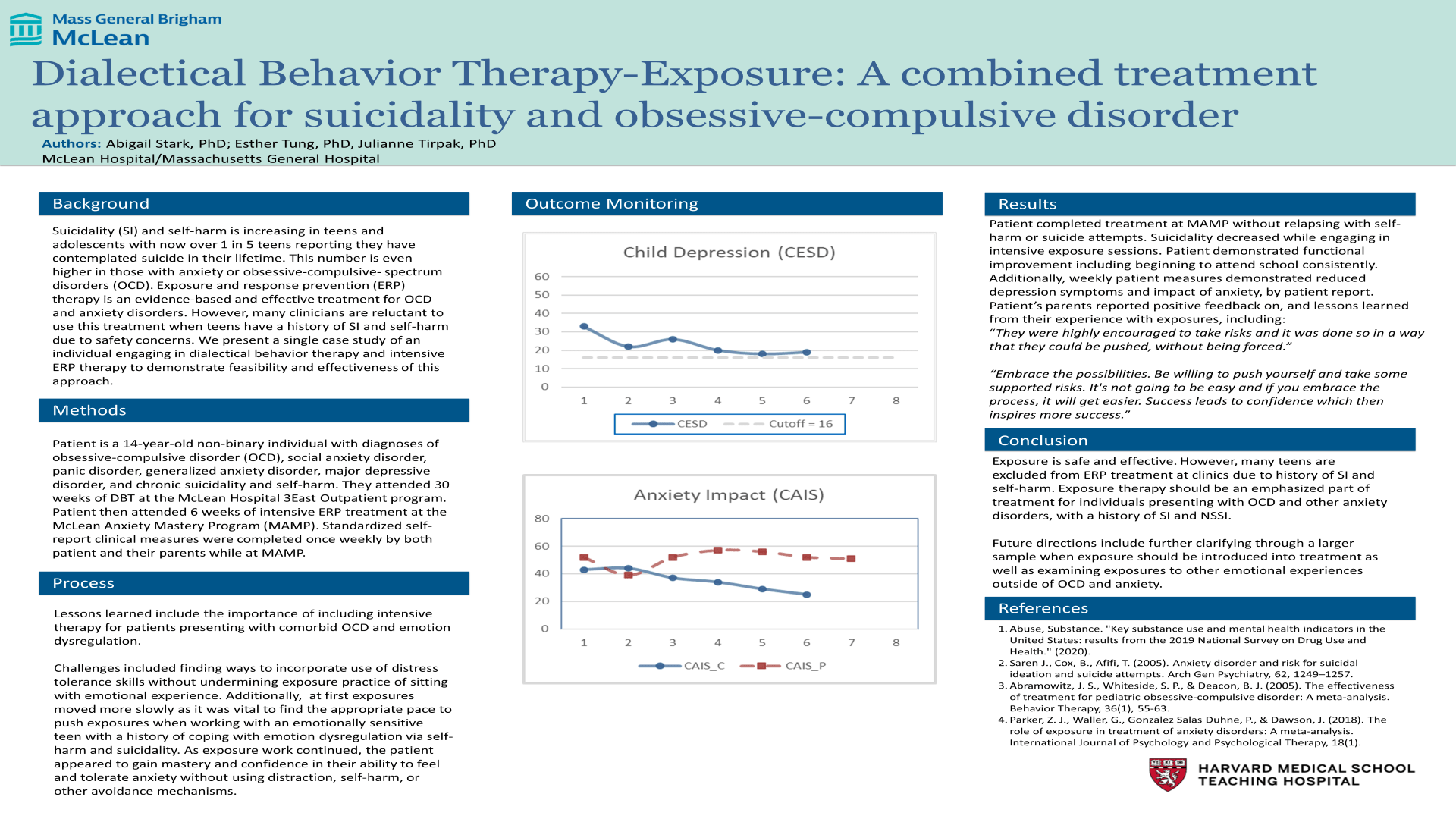Scientific Abstract
Background: Suicidality (SI) and self-harm is increasing in teens and adolescents with now over 1 in 5 teens reporting they have contemplated suicide in their lifetime. This number is even higher in those with anxiety or obsessive-compulsive- spectrum disorders (OCD). Exposure and response prevention (ERP) therapy is an evidence-based and effective treatment for OCD and anxiety disorders. However, many clinicians are reluctant to use this treatment when teens have a history of SI and self-harm due to safety concerns. We present a single case study of an individual engaging in dialectical behavior therapy and intensive ERP therapy to demonstrate feasibility and effectiveness of this approach.
Methods: Patient is a 14-year-old non-binary individual with diagnoses of obsessive-compulsive disorder (OCD), social anxiety disorder, panic disorder, generalized anxiety disorder, major depressive disorder, and chronic suicidality and self-harm. They attended 30 weeks of DBT at the McLean Hospital 3East Outpatient program. Patient then attended 6 weeks of intensive ERP treatment at the McLean Anxiety Mastery Program (MAMP). Standardized self-report clinical measures were completed once weekly by both patient and their parents while at MAMP.
Results: Patient completed treatment at MAMP without relapsing with self-harm or suicide attempts. Suicidality decreased while engaging in intensive exposure sessions. Patient demonstrated functional improvement including beginning to attend school consistently. This presentation will describe both data from weekly standardized measures and clinical observations.
Conclusions: Exposure is safe and effective. However, many teens are excluded from ERP treatment at clinics due to history of SI and self-harm. Exposure therapy should be an emphasized part of treatment for individuals presenting with OCD and other anxiety disorders, with a history of SI and NSSI. Lessons learned, challenges encountered, and future directions will be discussed.
Search posters

